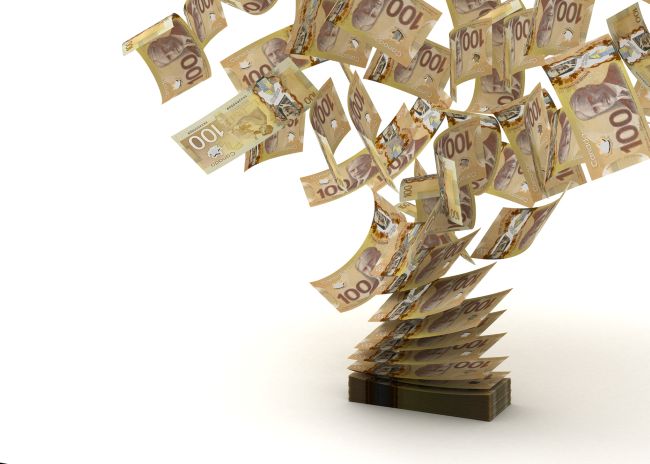

This article was first published in the Globe and Mail on May 10, 2025. It is being republished with permission.
by Tom Bradley
The focus of recent discussion in the media, and seemingly every dinner party, is who is losing from the tariff turbulence. The disruption will devastate some families and companies.
Less time is being spent on talking about the winners. Yes, where there’s losers, there’s winners. U.S. President Donald Trump’s turmoil will create new alliances between regions. Supply chains will become more flexible and robust. Talented researchers and engineers will move to Canada or stay here. Local merchants and tourist sites will benefit. And then there’s the matter of national pride. When was the last time you heard the national anthem being sung at the opera or symphony?
But it’s not just winners and losers. There’s another factor that goes into the economic equation. It’s the lost output because of what I call slippage. Change always comes with it, at least in the initial stages, but with Mr. Trump’s bull-in-a-China shop approach to trade reform, it’s off the charts.
We see slippage in decisions delayed because of uncertainty. The loss of months or years’ worth of economic activity and productivity gains that accrue when plants are built, products are launched, and young, innovative employees are promoted.
Slippage occurs when management time is chewed up doing damage control and preparing for multiple scenarios – none of which may occur. It’s the cost of the increased administrative burden on companies and government agencies related to new (and ever-changing) rules and taxes.
And most important of all, Trump-induced slippage includes the loss of trust and confidence, the lubricant for all economic activity. What took decades and centuries to build, has been obliterated in weeks.
As individuals we have little control over these kinds of impediments, but we can be on the lookout for them closer to home in our investment portfolios. Like the tariff turmoil, slippage can lead to meaningfully lower returns. The good news is, you have more control.
Slippage, or perhaps I should call it wastage or friction, is anything that lessens the amount of time and money that’s available for compounding. Albert Einstein referred to compound interest as the eighth wonder of the world. It’s a powerful and often underappreciated dynamic whereby an investor earns interest (return) on their interest (gains).
The list of possible sources of slippage mirrors those described with the tariff list above. It’s money that’s not invested right away. A bonus cheque or inheritance sitting in a non-interest-bearing account at your bank or broker for months.
Slippage occurs when you don’t take advantage of tax-sheltered accounts like TFSAs and RRSPs. It’s paying for a full-service adviser and getting little or no service and advice. (Canadian investors pay billions of dollars for services they’re not getting). It’s spreading money around in too many places and losing the benefit of scale (larger accounts tend to pay lower fees).
For money that has a longer time horizon (more than 10 years), slippage is pursuing strategies that sacrifice return for the sake of a smoother ride. Products designed to be less volatile offer less investment return, and generally have higher fees.
Frequent trading can cause slippage. Trading commissions have come down in recent years but can still add up. Active trading can trigger taxes prematurely and increases the likelihood that you’ll react unnecessarily to news and sell low or buy high. When chasing trends, the cost of getting it wrong can far exceed any commissions or bid/ask spreads.
On this point, it seems appropriate to join in on the celebration of Warren Buffett’s retirement with a favourite quote: “The stock market is a device for transferring money from the impatient to the patient.”
Changing advisers and/or investment firms too often can also result in additional commissions and transfer fees. Again, the fees aren’t always the biggest cost. The companies losing the assets often take their time transferring the money, which allows them to earn interest on your money while you’re underinvested. (Don’t get me started on this.)
Slippage for investors isn’t as impactful as what Mr. Trump is doing, but it can add up. As best you can, follow a routine that minimizes lazy money. Make portfolio or adviser changes sparingly. And share as little of your return as possible with the investment industry.
We’re not a bank.
Which means we don’t have to communicate like one (phew!). Sign up for our Newsletter and Blog and join the thousands of other Canadians who appreciate the straight goods on investing.







